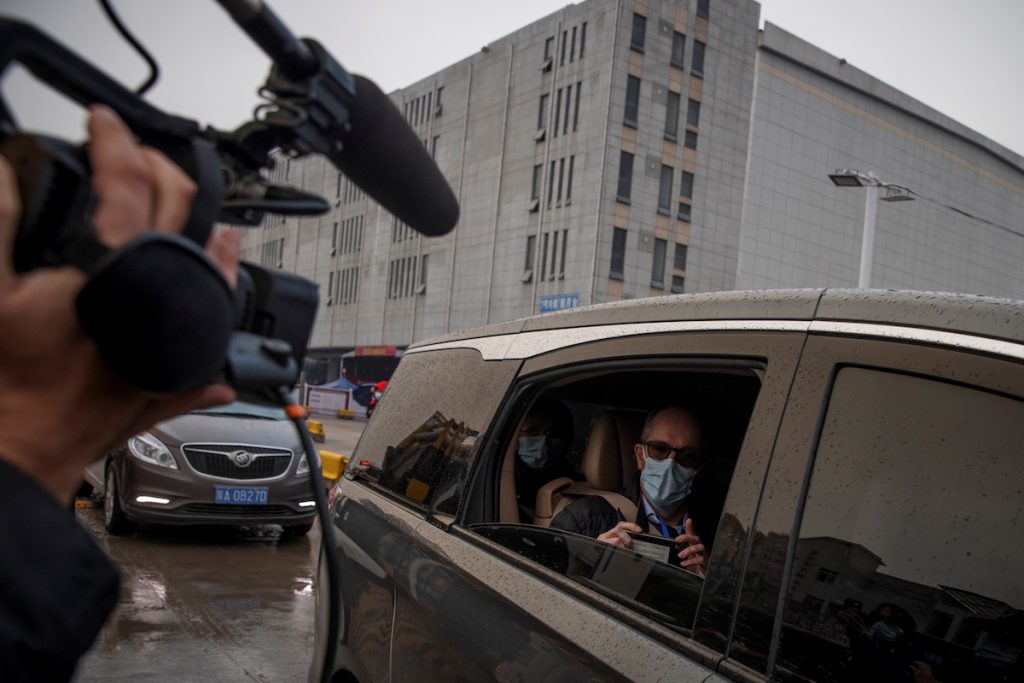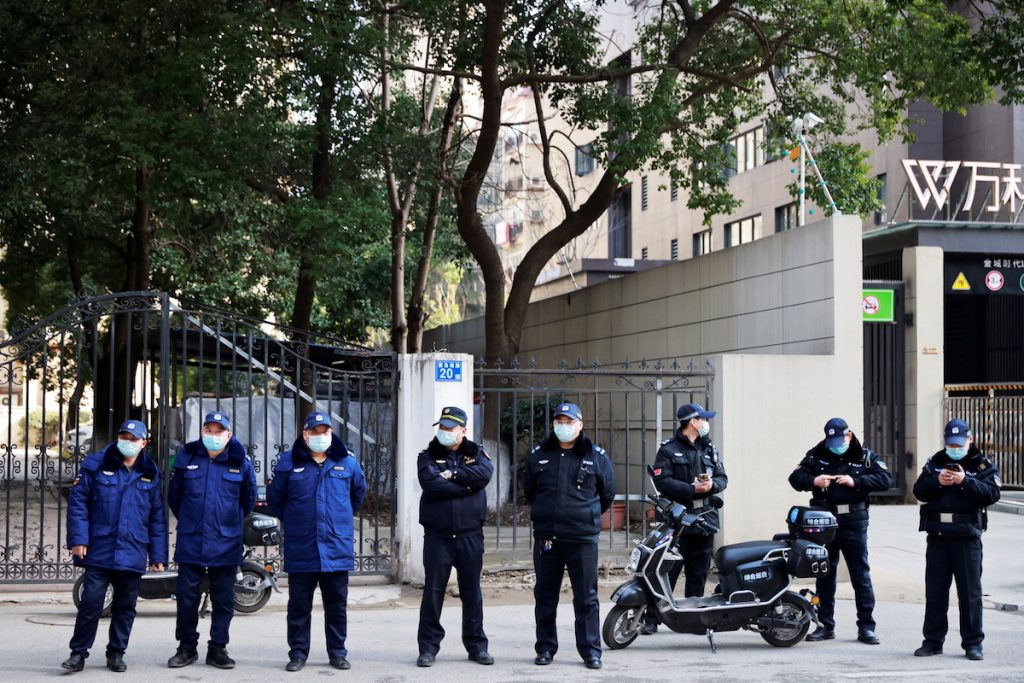A human rights organization warned this week World Health Organization investigators probing the origins of the coronavirus in China might not be able to get access to government critics.
“Even if they try, the WHO experts would have difficulties finding anybody to talk to, from … any critics of the Chinese government’s handling of the coronavirus outbreak,” read a report from the Chinese Human Rights Defenders group.
The group said Chinese authorities have been suppressing information and penalizing dissent.
“Citizen journalists who went to Wuhan in the early days of the coronavirus outbreak to report from the frontlines have either gone missing or went to jail,” said the group.
On Feb. 1, WHO investigators visited two disease control centers that had an early hand in managing the outbreak in the central Chinese city of Wuhan.
Since emerging from a 14-day quarantine period, the team have also visited hospitals and a seafood market linked to an early cluster of COVID-19 cases.
The WHO team is looking for large quantities of evidence including animal samples, genetic analysis, and epidemiological studies that will help it pin down the origins of the coronavirus that causes COVID-19.
A Reuters report said no full itinerary for the group’s field work has been announced, and journalists covering the tightly controlled visit have been kept at a distance from team members.
A post on the WHO’s Twitter account, however, said the team would include a visit to the Wuhan Institute of Virology, which carries out research into bat coronaviruses, sparking speculation that there is a link with its activities and the emergence of COVID-19 in the same city.
“Field visits will include the Wuhan Institute of Virology, Huanan market, Wuhan CDC laboratory,” the agency said via its Twitter account.

A Radio Free Asia report quoted political commentator Fu Shenqi as saying that city authorities have “reorganized” the South China Seafood Market linked to the start of the first outbreak beyond recognition.
“Equipment, materials, and data in P4 laboratories have been … hidden and the hospitals are fully prepared for these visits,” said Fu in a commentary broadcast on RFA’s Mandarin Service.
“What is there left for the experts to investigate?” he said, adding that the team is fully expecting this.
“The WHO doesn’t want the international community to have high expectations for this investigation,” Fu wrote.
“Official [government] rhetoric is even clearer that this isn’t an investigation, but more of a collaboration … with Chinese experts on the origins of the virus,” he added.
“We can expect the WHO to go through the motions with this probe … and China wants it to conclude that the source of the virus wasn’t in Wuhan,” Fu wrote.
Despite speculation around the Wuhan Institute of Virology, Beijing has repeatedly tried to change the narrative around the origins of the coronavirus, with state-run media frequently suggesting that it was brought to the country from somewhere else.
Fu said a vaguely worded report from the WHO team would be most likely to win the approval of the Chinese government.
Last week the BBC aired a documentary featuring a doctor from a Wuhan hospital hit hard by the COVID-19 pandemic who claimed that he and his colleagues were prevented from speaking out about the virus.

Rights group Human Rights Watch said earlier that since the outbreak in Wuhan, authorities detained several citizen journalists who reported from Wuhan. The rights group added that police warned human rights lawyers and activists not to comment on the coronavirus outbreak on the internet or to assist people seeking redress for COVID-19 related abuses.
China reported more than 2,000 new domestic cases of COVID-19 in January, the highest monthly total since the final phase of the initial outbreak in Wuhan in March 2020.
Two people died of the disease in January, the first fatalities in several months.
Meanwhile, travel bans and quarantine restrictions are being implemented nationwide ahead of the Lunar New Year celebrations starting Feb. 12, with schools only operating online, and government incentives offered to people who stay put and don’t travel back to be with relatives for the festive season.
According to official figures, more than 4,800 people in China have died from COVID-19. Some commentators have estimated that the actual number could be much higher.






